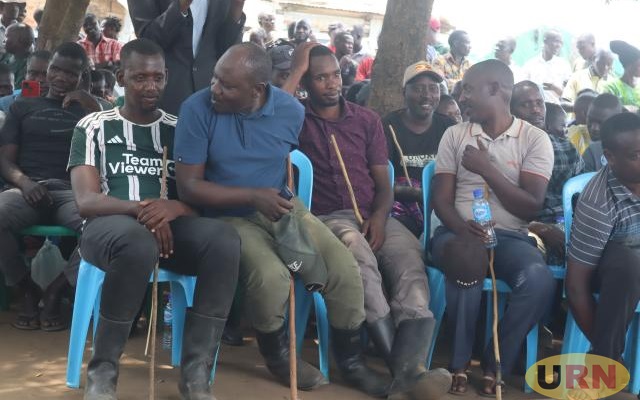
Moroto, Uganda | THE INDEPENDENT | Migrant cattle keepers, commonly known as Balaalo, have appealed to the government to consider carrying out thorough verification before enforcing the forceful eviction of all migrant cattle keepers from Northern Uganda.
The appeal comes nearly a week after a 14-day ultimatum announced by the State Minister for Northern Uganda, Kenneth Omona, ordering the eviction of all migrant cattle keepers from Northern Uganda expired on June 5. The latest directive followed repeated outcries from the local communities and leaders about the impacts of the large-scale cattle grazing on agriculture which has led to tensions with the predominantly agricultural local population.
Stephen Bugingo, the Vice Chairperson of the Northern Uganda Cattle Keepers Association, said while they won’t defy the latest presidential directive, they believe it’s blanket and affects many cattle keepers who complied with an earlier directive issued in 2023.
In May 2023, President Museveni issued Executive Order No3 directing the eviction of any migrant cattle keeper from northern Uganda who won’t comply with requirements of fencing their farms with four strands of barbed wire, establishing permanent water sources, and settling pending land related conflicts.
The president later formed a ten-member committee to implement the verification of the migrant cattle keepers in Northern Uganda, which stalled on unclear grounds.
Bugingo however told Uganda Radio Network Wednesday that they are surprised that even without the verification exercise, a new directive was issued by the government requiring all migrant cattle keepers irrespective of whether one has complied or not to leave.
He said the government ought to revisit the earlier directive to carry out verification so that only non-compliant migrant cattle keepers are evicted, while those who have legal status and live in harmony with local communities are left.
According to Bugingo, a number of the migrant cattle keepers have invested lots of money, while others have borrowed loans to purchase, rent and lease land to facilitate their cattle rearing business, adding that it would be unfair for the government to evict them without hearing them out.
Communities within the region, especially in the Acholi Sub-region, have repeatedly accused the migrant cattle keepers of interfering with the cultural setup, leaving their cattle to graze on farmlands and also exploiting locals in purchasing, hiring or leasing land.
While Bugingo dismissed allegations of exploitation and illegal land grabbing, he acknowledged some reports of animals belonging to migrant cattle keepers destroying crops on community farmlands and called for dialogue with the communities to address the problems.
The call for verification of the migrant cattle keepers has gained support from some of the locals in the Acholi Sub-region who warn that the indiscriminate forceful eviction plans could lead to legal battles between the government, land owners and the cattle keepers.
Charles Ocitti, the Chairperson of Jowa Land owners and Livestock Association, told Uganda Radio Network that not all the migrant cattle keepers in the region are illegal and cautioned the government against proceeding with the blanket eviction orders.
Ocitti says while he welcomes the eviction of non-compliant migrant cattle keepers, it’s inhumane to order the eviction of everyone without due verification of their status on whether they have complied with all procedures of land acquisition from local authorities.
According to Ocitti, there could be legal implications if the government proceeds with the eviction implementation, arguing that many of the cattle keepers have land sales, rental or lease documents obtained legally.
Despite the delayed implementation of the forceful eviction operation after the lapse of the 14-days ultimatum, the army insists the planned eviction will go on.
Gov’t Still Mobilising Resources
The Fourth Infantry Division Commander Maj Gen Felix Busizoori told URN Wednesday that the government is still mobilizing necessary resources to begin the implementation of a smooth and orderly eviction operation.
He noted that since many districts in the region have been mapped for the eviction exercise, the government ought to plan for the right resources to enable a successful operation.
“You need manpower, you need trucks, you need food, you need fuel, you need everything. Because there are many districts. So operating in 18 districts, that is not something small,” Gen Busizoori told Uganda Radio Network.
Gen Busizoori noted that already, the government has assembled trucks which are on standby for the operation while mobilization for manpower and food is about to get completed.
He said despite the delayed evictions operations, the President’s orders to evict all the cattle keepers still stands until otherwise.
“There is nothing i am changing because I have not got any change in the directive. The directive is the same, so how do I change the statement? The statement remains the same, there is no change not until we get any change in the presidential directive,” said Gen Busizoori.
Gen Busizoori however didn’t specify when the forceful eviction operation will commence but assured the public that once all the needed resources are in place, the government will issue a statement.
Despite the 14-day ultimatum, a handful of the cattle keepers have voluntarily left according to local authorities with the majority insisting they have met all conditions earlier set by the President to fence off their farms, settle pending land conflicts and establish water sources.
According to the migrant cattle keepers’ leadership, there are approximately 1,000 to 1,200 kraals operated by migrant cattle keepers with an estimated 200,000 herds of cattle in Northern Uganda.
The latest directive by the president to evict the migrant cattle keepers out of the region is not new. Between 2018 to date, the president has issued at least three directives aimed at evicting the cattle keepers but all have stalled on accounts of limited resources, pending verification exercises and outbreak of foot and mouth disease.
***
URN
 The Independent Uganda: You get the Truth we Pay the Price
The Independent Uganda: You get the Truth we Pay the Price



